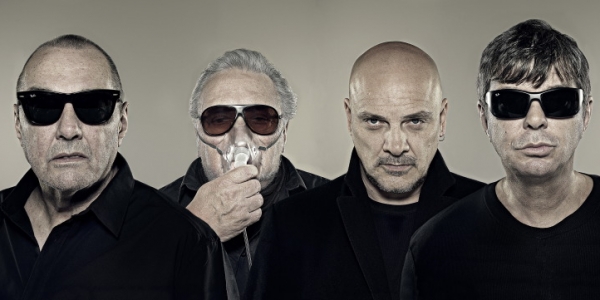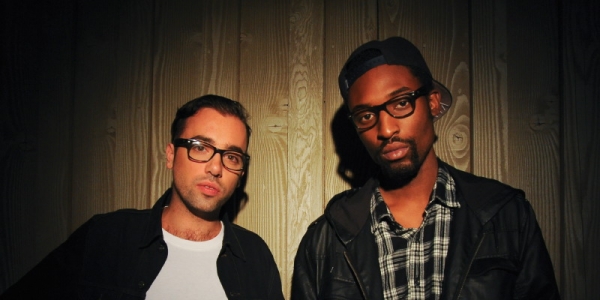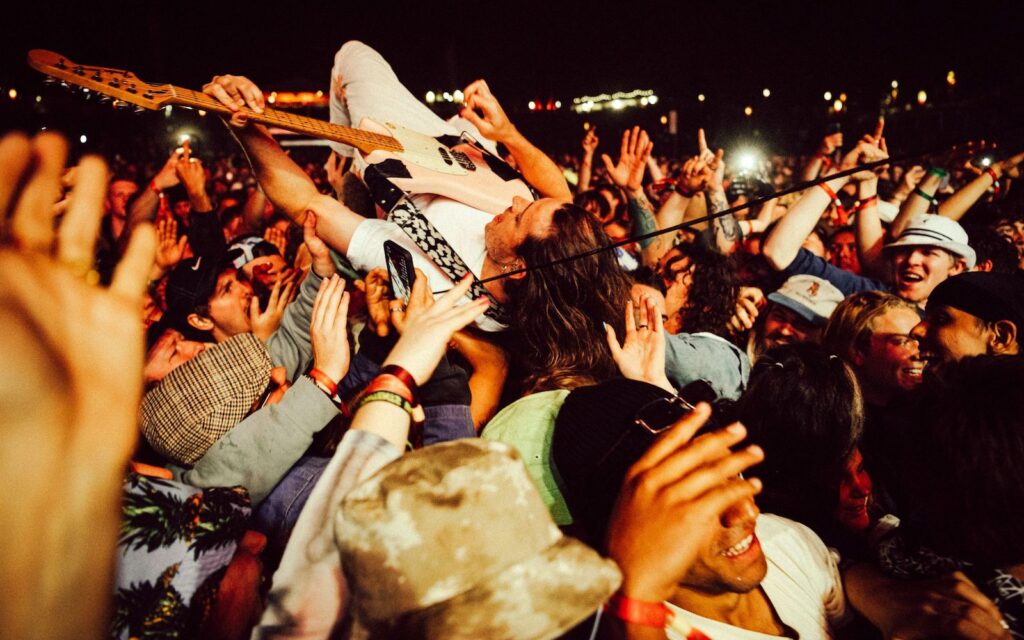“It’s eight o’clock in the morning,” says the 60-year-old Burnel, answering the phone from his London home. “I have to go give a karate lesson in Chelsea in a few hours. I’ve been doing it for forty years now,” he says in a mix of braggadocio and congenial, British manner. Burnel admits that his interest in martial arts might not be what he’s known for. But then again, Burnel and The Stranglers have made a career out of not being very well known.
“I’m sure that keeping out of the limelight, and being vampiric has helped (The Stranglers) in a way. It detracts from who you are as a person. The parties, I don’t like that sort of thing. I’ve got my own life, which I’d prefer to keep quite private, to be honest.”
It’s hard to believe Burnel, the same man who was once quoted as stating that The Stranglers were “…due for tyranny. You may laugh but it’s going to happen,” now graciously accepts a quiet existence. For The Stranglers, who began gigging in 1974 and rose to prominence as one of the more daring acts within England’s explosive punk scene, maintaining a private dignity was never an issue for the band.
“We’ve been quite lucky because there’s never been any pressure on us to produce music that wasn’t honest to ourselves. The only time our record company tried influencing what we did, we told ‘em to fuck off,” he says dryly.
Deeply-rooted with an anti-establishment and anti-commercial mentality from the beginning, punk found early leaders in The Stranglers. As Burnel walks me through the band’s history chronologically throughout our 30-minute conversation, he notes that even from the inside of the punk movement there was the understanding that momentum was growing.
“There were only a few places that we could congregate with like-minded folk. I remember on one occasion, and it might have been when we played with Patti Smith, when Joe Strummer, who was in a band called the 101’ers before he started The Clash up, was crying on my shoulder saying, ‘I wish I had a band like yours.’ We were part of a group of people who learned to play while they were gigging. We basically learnt to avoid beer bottles being thrown onstage. All these bands were coming to see us. There was definitely something in the air.”
Though The Stranglers and The Clash lead the charge early on, it wasn’t long before The Stranglers were ostracised from the punk community. Burnel’s songwriting was evidently too adventurous in the eyes of some.
“There was a new form of orthodoxy. We were criticised from our first record for using synthesisers. I don’t know who made this rule up, but it coalesces and when you have these rules, things lend themselves to falling apart. There was a spontaneous thing happening across the UK at the time and I found it be liberating. I thought you could really express yourself in your work in any way you wanted.”
Yet Burnel refused to allow their position in pop culture define them as a band. They survived the next three decades and outlasted their contemporaries, even though many didn’t think it could be done. 2012 has brought the release of Giants, the band’s seventeenth full-length. While many his age are considering retirement, Burnel’s energy and enthusiasm within the band has been renewed.
“You become energised by people and situations. At the moment we’re enjoying each other’s company, we’re throwing ideas off each other and there’s just so much to write about in the world. There’s so much music as well to explore. It just depends on how interested you are and how open you are.”
BY JOSHUA KLOKE







